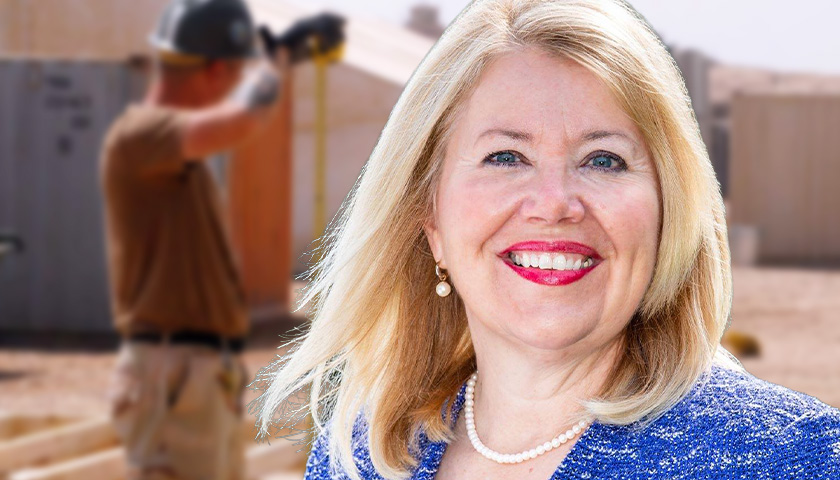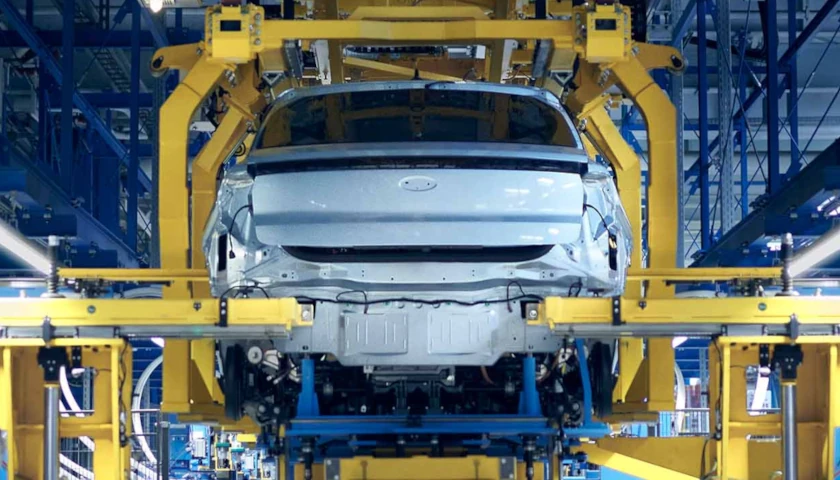Arizona Representative Debbie Lesko (R-AZ-08) recently sent a letter to the Department of Energy Secretary Jennifer Granholm, requesting she delay the deadline for implementing minimum efficiency performance requirements for heating, ventilation, and air conditioning (HVAC) in the south to give Arizona builders a buffer period.
“The Biden Administration has instituted an unworkable timeline for its new HVAC efficiency requirements that will harm Arizona builders,” Lesko said in a press release. “This deadline does not allow for a buffer period for builders to install existing and in-stock HVAC systems while they wait for the compliant systems to arrive, which will halt current construction projects. I am urging the Biden Administration to change the deadline to provide builders with the time they need to implement these new requirements.”
In her letter, which all other Arizona Republican House Members and Representative Tom O’Halleran (D-AZ-01) co-signed, Lesko outlined that the current January 1st, 2023, the DOE’s deadline to increase minimum efficiency for HVAC units does not give enough time for the residential construction industry and HVAC manufacturers to make necessary updates. While Lesko agreed that updating efficiency standards for HVAC equipment is important, especially in Arizona, she says this current deadline presents “serious logistical issues” to house construction in Arizona.
Lesko outlined that houses in Arizona are created in phases, with different HVAC equipment needed for phases at the beginning and end of construction that are often months apart. She said that in order to comply with the January deadline, homebuilders would need the new equipment today for what is needed at the start of construction. However, because of the ongoing supply chain issues that plague America, getting access to new equipment may not be feasible.
“We are asking the Department of Energy, as it implements the higher efficiency requirements and new testing procedures for determining efficiency ratings, to please keep in mind the on-the-ground reality of these changes,” Lesko said. “If our residential construction industry cannot access the equipment with a six-month lead time, it potentially jeopardizes residential construction’s ability to close on homes for months while the manufacturers and the supply chain figure out what they are doing.”
Lesko ends her letter by requesting that the deadline be moved to July 1st, 2023, to give a buffer period to workers who may need extra time to get the necessary equipment.
Contracting Business presented that the minimum efficiency standard for HVAC increase will require all air conditioners in the south to increase their seasonal energy efficiency rating (SEER) from 14.0 to 15.0. The higher the SEER, the higher the energy efficiency of the air conditioning unit. Any unit that does not meet the standard cannot be installed on or after January 1st, 2023.
Air-Conditioning, Heating, & Refrigeration Institute (AHRI) shared that there is a standard test for determining a unit’s SEER, which is dividing the cooling output over a typical cooling season by the energy it uses over the season. However, that test is being updated by the DOE in 2023 to reflect field conditions more accurately.
As reported by Azfamily, Arizona air conditioning companies do feel the effect of supply chain issues. Mike Donley, president of Donley A/C and Plumbing, said business is more challenging now than any other time during his 30-year career. Getting necessary parts can take days or even months if it has to be manufactured.
– – –
Neil Jones is a reporter for The Arizona Sun Times and The Star News Network. Follow Neil on Twitter. Email tips to [email protected].
Photo “Debbie Lesko” by Congresswoman Debbie Lesko.





